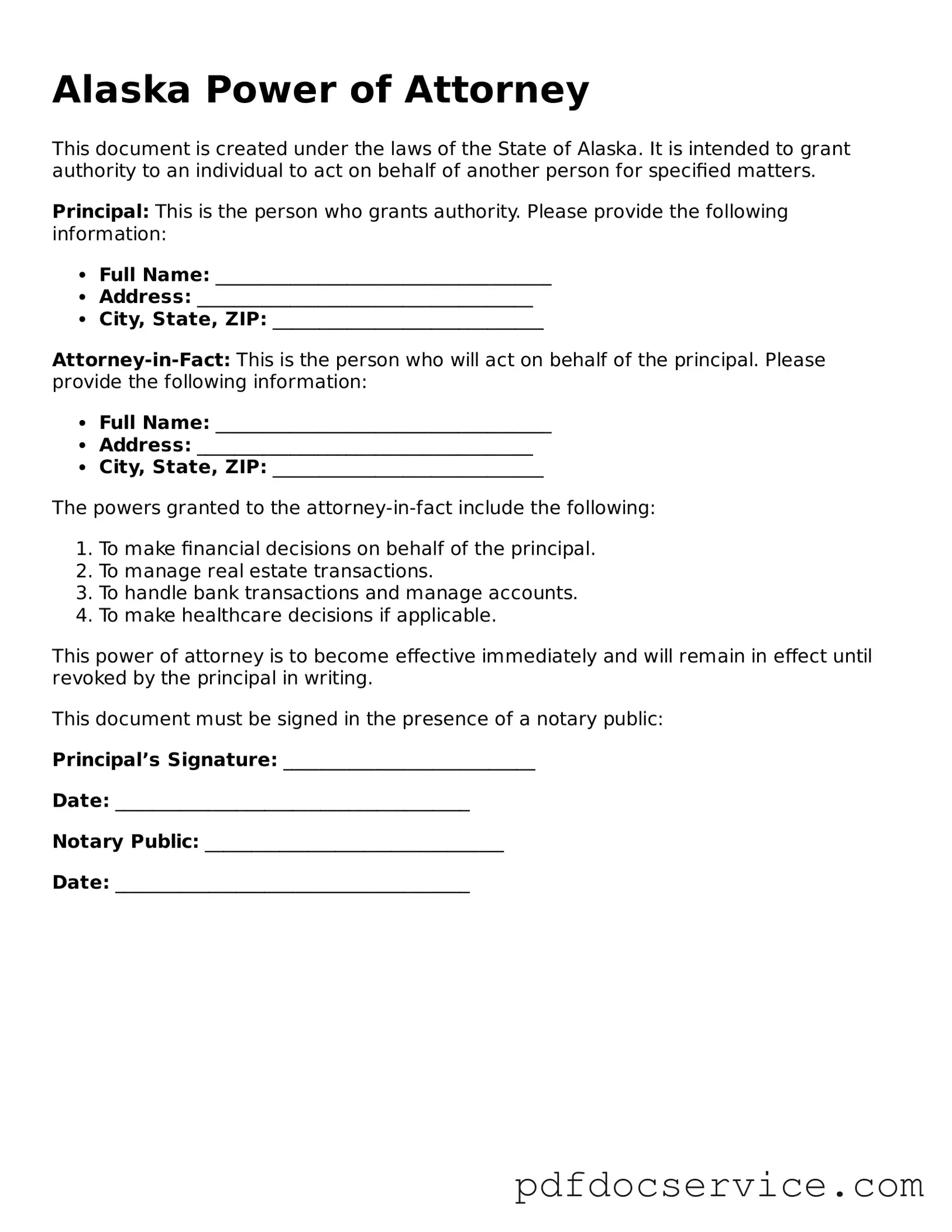What is a Power of Attorney in Alaska?
A Power of Attorney (POA) is a legal document that allows one person, known as the principal, to designate another person, called the agent or attorney-in-fact, to act on their behalf. This authority can cover a wide range of decisions, including financial matters, healthcare decisions, and real estate transactions. In Alaska, the POA must be signed by the principal and typically requires notarization to be valid.
What types of Power of Attorney are available in Alaska?
In Alaska, there are several types of Power of Attorney, including:
-
General Power of Attorney:
Grants broad powers to the agent to manage the principal's affairs.
-
Limited Power of Attorney:
Restricts the agent's authority to specific tasks or for a limited time period.
-
Durable Power of Attorney:
Remains effective even if the principal becomes incapacitated.
-
Healthcare Power of Attorney:
Specifically allows the agent to make medical decisions for the principal if they are unable to do so.
How do I create a Power of Attorney in Alaska?
Creating a Power of Attorney in Alaska involves several steps:
-
Determine the type of POA you need based on your circumstances.
-
Choose a trustworthy agent who will act in your best interest.
-
Complete the Power of Attorney form, ensuring all necessary details are included.
-
Sign the document in the presence of a notary public to ensure its validity.
-
Provide copies to your agent and any relevant parties, such as banks or healthcare providers.
Can I revoke a Power of Attorney in Alaska?
Yes, you can revoke a Power of Attorney in Alaska at any time, as long as you are mentally competent. To do this, you must create a written revocation document and notify your agent and any institutions that have relied on the original POA. It is advisable to formally cancel the previous document to avoid confusion.
What happens if I become incapacitated and have a Power of Attorney?
If you become incapacitated and have established a Durable Power of Attorney, your agent will be able to make decisions on your behalf. This includes managing your financial affairs and making healthcare decisions. However, if your POA is not durable, it will become invalid upon your incapacitation, and a court may need to appoint a guardian to manage your affairs.
Is it necessary to have a lawyer to create a Power of Attorney in Alaska?
While it is not legally required to have a lawyer to create a Power of Attorney in Alaska, consulting with one can be beneficial. A lawyer can help ensure that the document meets all legal requirements and accurately reflects your wishes. This is particularly important if you have complex financial or healthcare needs, as a lawyer can provide tailored advice and guidance.

